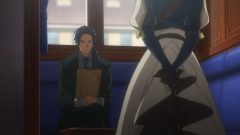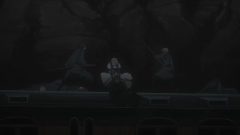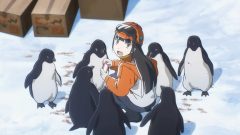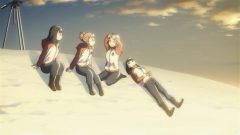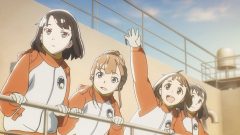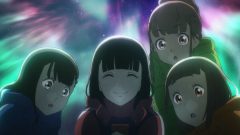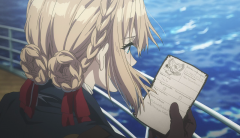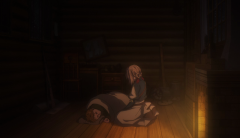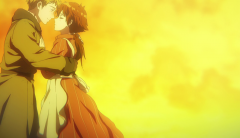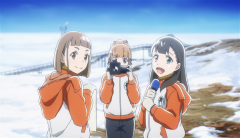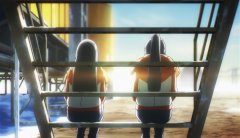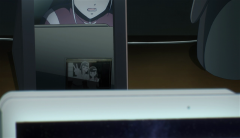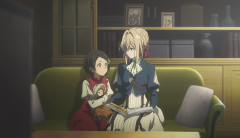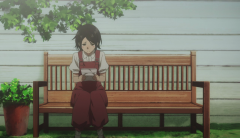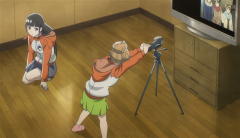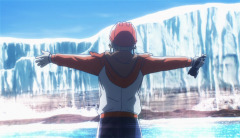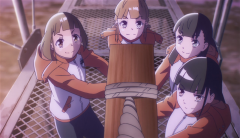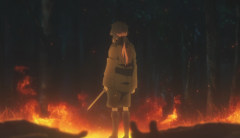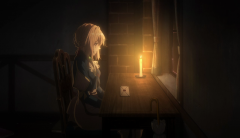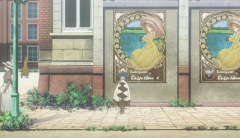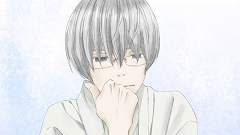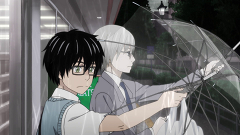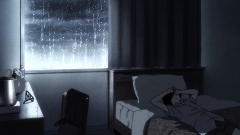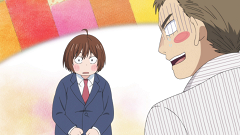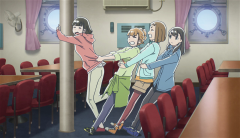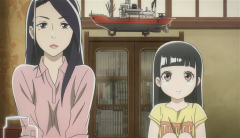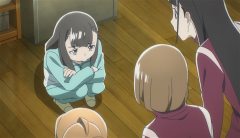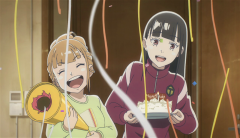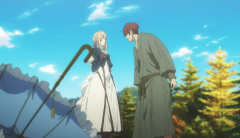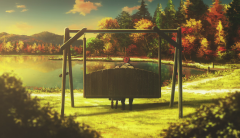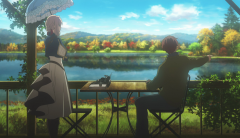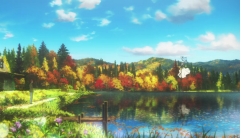Violet Evergarden finally reaches its finale arc, and unsurprisingly, the Peace-opposition rebel and Gilbert’s brother Diethard come into play. In an essence, Violet is fighting two wars: the war against the bad guys who want disrupt the peace, and a war against Diethard to recognise her as something more than a war tool, as a human being. Not to say this episode totally won me over, but I can say at least I am invested enough to see how it all turns out. It’s inevitable to put Diethard as the main obstacle for our Violet here, as he has always seen Violet as a killing machine, and that conflict now is peppered with the pain that his brother died while she’s still alive. Diethard repeatedly regards her as “a tool”, and further despises her for her Doll job. He blames Violet for the loss of his brother, but we can see a lot more of emotions in him going on beneath the ground. Through the course of the mission, however, he can see that Violet has changed in a lot of ways. She’s more expressive, and now she refuses to kill anyone anymore. That is when the show lost me a little. Violet is basically going through Rurouni Kenshin’s arc now, and that makes sense. But the reason she gives, the reason why she doesn’t take orders from Diethard anymore, is because it’s an order from Gilbert entails that she had to live. WHAT? So all her development from previous episodes come down to this conclusion? That she still rely to some dead man’s words to live? Yare Yare
Putting that aside, I have a slight concerns with how Violet Evergarden portraits the Anti-Peace army. Most of them turn out just as ruthless, pathetic soldiers who can’t get on with the Peace because they stay too long at war. The bad guy from the last episode returns, and guess what, he’s even more merciless. It’s such a clear cut between good and bad that it leaves the ambiguity out the window. Nevertheless, the fights at the end really got me. For once, Violet decides not to kill any enemy, and it’s clear that it does her more harm than good. In a battlefield, basically everyone is an enemy and if she doesn’t kill them, they will all come fighting back at her. The way Diethard saves her was good because at a glimpse I almost think that it was Gilbert who saved her (thank God it’s not the case), and finally the closing shot where Violet saves him by her robotic hands really hit its powerful notes. It takes the mechanical hands to remind Diethard that Violet has grown into a fully-formed human. It takes the hands that write letters and save people in its own ways to save him. It’s certainly one of Violet Evergarden’s best moments.
Certainly not a bad way to start off the final arc, now that the anti-Peace soldiers are gone, the stakes might raise higher with the peace treaty (that might need someone’s letter here), together with Diethard and Violet’s own fights. She has done a tremendous development throughout the series, so it’s now the time for everyone to fully acknowledge it.


